|
I'm keen while we're walking around Newmillerdam
with our friends from Cumbria, Hilary and David,
to tap into David's knowledge of digital photography and to get
him to show me some of the possibilities of my Canon PowerShot
G5.
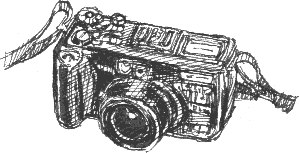
|
Adjusting the ASA setting (which I haven't reset all year!) he
discovers a wheel on the front of the camera to make adjustments
easier. A wheel that, needless to say, I had never noticed.
'What shall I photograph?' he asks me.
'There's a lovely mallard drake there, if you
could get a bit closer to him.'
But the drake is just enjoying the morning sun, looking out through
half-closed eyes over the lake. I reach down for a small piece of
twig and gently toss it into the water, hoping that he will move
his head into a more photogenic pose.
Assuming that breadcrumbs might be on offer the drake poddles down
towards the water, then stops (right), as if he's thinking:
'Huh! No bread: I've been duped!'
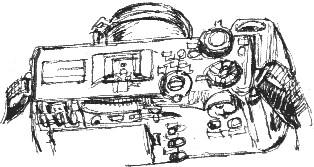
|
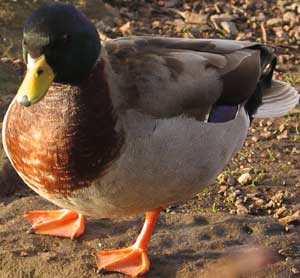
In the full size photograph you can see tiny grey bars all over
the feathers on his flanks.
|
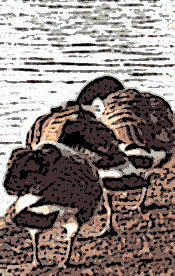 Posterized
Geese Posterized
Geese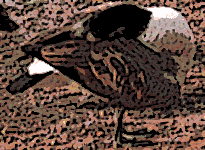
When we get back home and take a look at the photographs on the computer,
David asks if I've ever tried posterizing an image.
The posterize filter ('posterize edges' as it's called in Photoshop)
reduces the number of tones in a photograph to give a bold, graphic, printed
effect. You can take this to extremes as I have here to give an effect
that reminds me of lino-cuts in the way the Canada
geese have turned out and of woodcuts in the
wood-grain-like marks of the ripples on the water (right).
If you imagine cutting into a sheet of lino with a curved-bladed lino-cutting
tool, you would get marks very similar to the white spaces on the preening
goose(left). 
Richard Bell, richard@willowisland.co.uk
|